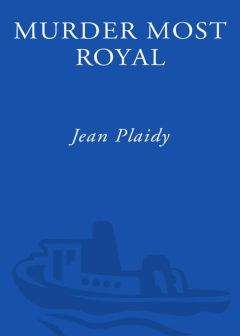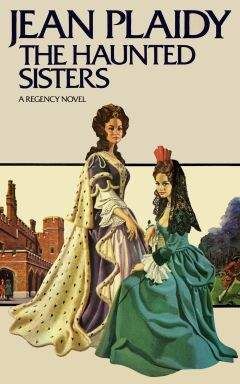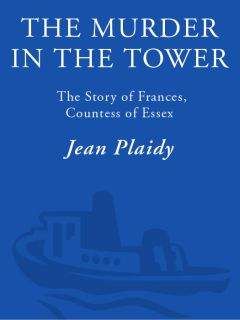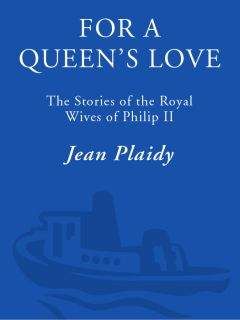Jean Plaidy - Murder Most Royal: The Story of Anne Boleyn and Catherine Howard
На сайте mybooks.club вы можете бесплатно читать книги онлайн без регистрации, включая Jean Plaidy - Murder Most Royal: The Story of Anne Boleyn and Catherine Howard. Жанр: Прочее издательство неизвестно,. Доступна полная версия книги с кратким содержанием для предварительного ознакомления, аннотацией (предисловием), рецензиями от других читателей и их экспертным мнением.
Кроме того, на сайте mybooks.club вы найдете множество новинок, которые стоит прочитать.

Jean Plaidy - Murder Most Royal: The Story of Anne Boleyn and Catherine Howard краткое содержание
Murder Most Royal: The Story of Anne Boleyn and Catherine Howard читать онлайн бесплатно
“There you ask a question which gallantry might bid me answer one way, truth another.”
He was cruel, and he meant to be cruel; he knew how to hurt her most; he had discovered her to be jealous, possessive and vindictive, and having no love for her he cared nothing for the jealousy, while the possessiveness irked him, and her vindictiveness left him cold; he was careless of himself and reckless as to what harm might come to him.
Her parents had thought it advantageous to link their daughter’s fortunes with those of the Boleyns, which were rising rapidly under the warming rays of royal favor; so she had married, and once married had fallen victim to the Boleyn charm, to that ease of manner, to that dignity, to that cleverness. But what hope had Jane of gaining George’s love? What did she know of the things for which he cared so deeply? He thought her stupid, colorless, illiterate. Why, she wondered, could he not be content to make merry, to laugh at the frivolous matters which pleased her; why could he not enjoy a happy married life with her, have children? But he did not want her, and foolishly she thought that by quarreling, by forcing him to notice her, she might attract him; instead of which she alienated him, wearied him, bored him. They were strange people, thought Jane, these two younger Boleyns; amazingly alike, both possessing in a large degree the power of attracting not only those who were of the same genre as themselves, but those who were completely opposite. Jane believed them both to be cold people; she hated Anne; indeed she had never been so wretched in her life until the return of her sister-in-law; she hated her, not because Anne had been unpleasant to her, for indeed Jane must admit that Anne had in the first instance made efforts to be most sisterly; but she hated Anne because of the influence she had over her brother, because he could give her who was merely his young sister much affection and admiration, while for Jane, his wife who adored him, he had nothing but contempt.
So now she tried to goad him, longed for him to take her by the shoulders and shake her, that he might lay hands on her if only in anger. Perhaps he knew this, for he was diabolically clever and understood most uncomfortably the workings of minds less clever than his own. Therefore he sat, arms folded; looking at the pen stuck in the polished floor, bored by Jane, weary of the many scenes she created, and heartlessly careless of her feelings.
“George....”
He raised weary eyebrows in acknowledgment.
“I...I am so unhappy!”
He said, with the faintest hint of softness in his voice: “I am sorry for that.”
She moved closer; he remained impassive.
“George, what are you writing?”
“Just an airy trifle,” he said.
“Are you very annoyed that I interrupted?”
“I am not annoyed,” he replied.
“That pleases me, George. I do not mean to interrupt. Shall I get your pen?”
He laughed and, getting up, fetched it himself with a smile at her. Any sign of quiet reason on her part always pleased him; she struggled with her tears, trying to keep the momentary approval she had won.
“I am sorry, George.”
“It is of no matter,” he said. “I’ll warrant also that I should be the one to be sorry.”
“No, George, it is I who am unreasonable. Tell me, is that for the King’s masque?”
“It is,” he said, and turned to her, wanting to explain what he, with Wyatt, Surrey and Anne, was doing. But he knew that to be useless; she would pretend to be interested; she would try very hard to concentrate, then she would say something that was maddeningly stupid, and he would realize that she had not been considering what he was saying, and was merely trying to lure him to an amorous interlude. He had little amorous inclination towards her; he found her singularly unattractive and never more so than when she tried to attract him.
She came closer still, leaning her head forward to look at the paper. She began to read.
“It is very clever, George.”
“Nonsense!” said George. “It is very bad and needs a deal of polishing.”
“Will it be sung?”
“Yes, Anne will write the music.”
Anne! The very mention of that name destroyed her good resolutions.
“Anne, of course!” she said with a sneer.
She saw his eyes flash; she wanted to control herself, but she had heard the tender inflection of his voice when he said his sister’s name.
“Why not Anne?” he asked.
“Why not Anne?” she mimicked. “I’ll warrant the greatest musician in the kingdom would never write music such as Anne’s...in your eyes!”
He did not answer that.
“The King’s own music,” she said, “you would doubtless consider inferior to Anne’s!”
That made him laugh.
“Jane, you little fool, one would indeed be a poor musician if one was not more talented in that direction than His Majesty!”
“Such things as you say, George Boleyn, were enough to take a man’s head off his shoulders.”
“Reported in the right quarter, doubtless. What do you propose, sweet wife? To report in the appropriate quarter?”
“I swear I will one day!”
He laughed again. “That would not surprise me, Jane. You are a little fool, and I think out of your vindictive jealousy might conceivably send your husband to the scaffold.”
“And he would richly deserve it!”
“Doubtless! Doubtless! Do not all men who go to the scaffold deserve their fate? They have spoken their minds, expressed an opinion, or have been too nearly related to the King...all treasonable matters, my dear Jane.”
For this recklessness she loved him. How she would have liked to be as he was, to have snapped her fingers at life and enjoyed it as he did!
“You are a fool, George. It is well for you that you have a wife such as I!”
“Well indeed, Jane!”
“Mayhap,” she cried, “you would rather I looked like your sister Anne, dressed like your sister Anne, wrote as she wrote....Then I might find approval in your sight!”
“You never could look like Anne.”
She flashed back: “It is not given to all of us to be perfect!”
“Anne is far from that.”
“What! Sacrilege! In your eyes she is perfect, if ever any woman was in man’s eyes.”
“My dear Jane, Anne is charming, rather because of her imperfections than because of her good qualities.”
“I’ll warrant you rage against Fate that you could not marry your sister!”
“I never was engaged in such a foolish discussion in all my life.”
She began to cry.
“Jane,” he said, and put a hand on her shoulder. She threw herself against him, forcing the tears into her eyes, for they alone seemed to have the power to move him. And as they sat thus, there was the sound of footsteps in the corridor, and these footsteps were followed by a knock on the door.
George sat up, putting Jane from him.
“Enter!” he called.
They trooped in, laughing and noisy.
Handsome Thomas Wyatt was a little ahead of the others, singing a ballad. Jane disliked Thomas Wyatt; indeed she loathed them all. They were all of the same caliber, the most important set at court these days, favorites of the King every one of them, and all connected by the skein of kinship. Brilliant of course they were; the songsters of the court. One-eyed Francis Bryan, Thomas Wyatt, George Boleyn, all of them recently returned from France and Italy, and eager now to transform the somewhat heavy atmosphere of the English court into a more brilliant copy of other courts they had known. These gay young men were anxious to oust the duller element, the old set. No soldiers nor grim counselors to the King these; they were the poets of their generation; they wished to entertain the King, to make him laugh, to give him pleasure. There was nothing the King asked more; and as this gay crowd circulated round none other than the lady who interested him so deeply, they were greatly favored by His Majesty.
Jane’s scowl deepened, for with these young men was Anne herself.
Anne threw a careless smile at Jane, and went to her brother.
“Let us see what thou hast done,” she said, and snatched the paper from him and began reading aloud; and then suddenly she stopped reading and set a tune to the words, singing them, while the others stood round her. Her feet tapped, as her brother’s had done, and Wyatt, who was bold as well as handsome, sat down between her and George on the window seat, and his eyes stayed on Anne’s face as though they could not tear themselves away.
Jane moved away from them, but that was of no account for they had all forgotten Jane’s presence. She was outside the magic circle; she was not one of them. Angrily she watched them, but chiefly she watched Anne. Anne, with the hanging sleeves to hide the sixth nail; Anne, with a special ornament at her throat to hide what she considered to be an unbecoming mole on her neck. And now all the ladies at the court were wearing such ornaments. Jane put her hand to her throat and touched her own. Why, why was life made easy for Anne? Why did everyone applaud what she did? Why did George love her better than he loved his wife? Why was clever, brilliant and handsome Thomas Wyatt in love with her?
Jane went on asking herself these questions as she had done over and over again; bitter jealousy ate deeper and deeper into her heart.
Wyatt saw her sitting by the pond in the enclosed garden, a piece of embroidery in her hands. He went to her swiftly. He was deeply and passionately in love.
She lifted her face to smile at him, liking well his handsome face, his quick wit.
“Why, Thomas...”
“Why, Anne...”
He threw himself down beside her.
“Anne, do you not find it good to escape from the weary ceremony of the court now and then?”
“Indeed I do.”
Her eyes were wistful, catching his mood. They were both thinking of Hever and Allington in quiet Kent.
“I would I were there,” he said, for such was the accord between them that they sometimes read the other’s thoughts.
“The gardens at Hever will be beautiful now.”
“And at Allington, Anne.”
“Yes,” she said, “at Allington also.”
He moved closer.
“Anne, what if we were to leave the court...together? What if we were to go to Allington and stay there...?”
“You to talk thus,” she said, “and you married to a wife!”
“Ah!” His voice was melancholy. “Anne, dost remember childhood days at Hever?”
“Well,” she answered. “You locked me in the dungeons once, and I declare I all but died of fright. A cruel boy you were, Thomas.”
“I! Cruel...and to you! Never! I swear I was ever tender. Anne, why did we not know then that happiness for you and me lay in the one place?”
“I suppose, Thomas, that when we are young we are so unwise. It is experience that teaches us the great lessons of life. How sad that, in gaining experience, we so often lose what we would most cherish!”
He would have taken her hand, but she held him off.
“Methinks, we should return,” she said.
“Now...when we are beginning to understand each other!”
“You, having married a wife...” she began.
“And therein being most unhappy,” he interrupted; but she would have none of his interruptions.
“You are in no position to speak in this wise, Thomas.”
“Anne, must we then say a long farewell to happiness?”
“If happiness would lie in marriage between us two, then we must.”
“You would condemn me to a life of melancholy.”
“You condemned yourself to that, not I!”
“I was very young.”
“You were, I mind well, a most precocious boy.”
He smiled back sadly over his youth. A boy of great precocity, they had sent him to Cambridge when he was twelve, and at seventeen had married him to Elizabeth Brooke, who was considered a good match for him, being daughter of Lord Cobham.
“Why,” he said, “do our parents, thinking to do well for us, marry us to their choice which may well not be our own? Why is the right sort of marriage so often the unhappy one?”
Anne said: “You are spineless, all of you!” And her eyes flashed as her thoughts went to Percy. Percy she had loved and lost, for Percy was but a leaf wafted by the winds. The wicked Cardinal whom she hated now as she had ever done, had said, “It shall not be!” And meekly Percy had acquiesced. Now he would complain that life had denied him happiness, forgetting he had not made any great effort to attain it. And Wyatt, whom she could so easily love, complained in much the same manner. They obeyed their parents; they married, not where they listed, but entered into any match that was found for them; then they bitterly complained!
“I would never be forced!” she said. “I would choose my way, and, God help me, whatever I might encounter I would not complain.”
“Ah! Why did I not know then that my happiness was with Anne Boleyn!”
She softened. “But how should you know it...and you but seventeen, and I even less?”
“And,” he said, “most willing to engage yourself to Percy!”
“That!” She flushed, remembering afresh the insults of the Cardinal. “That...Ah! That failed just as your marriage has failed, Thomas, though differently. Perchance I am glad it failed, for I never could abide a chicken-livered man!”
Now he was suddenly gay, throwing aside his melancholy; he would read to her some verses he had written, for they were of her and for her, and it was meet that she should hear them first.
So she closed her eyes and listened and thrilled to his poetry, and was sad thinking of how she might have loved him. And there in the pond garden it occurred to her that life had shown her little kindness in her love for men. Percy she had lost after a brief glimpse into a happy future they were to have shared; Wyatt she had lost before ever she could hope to have him.
What did the future hold for her? she wondered. Was she going on in this melancholy way, loving but living alone? It was unsatisfactory.
Thomas finished reading and put the poem into his pocket, his face flushed with appreciation for his work. He has his poetry, she mused, and what have I? Yes, the rest of us write a little; it is to us a pleasant recreation, it means not to us what it does to Wyatt. He has that, and it is much. But what have I?
Wyatt leaned forward; he said earnestly: “I shall remember this day forever, for in it you all but said you loved me!”
“There are times,” she said, “when I fear that love is not for me.”
“Ah, Anne! You are gloomy today. Whom should love be for, if not for those who are most worthy to receive it! Be of good cheer, Anne! Life is not all sadness. Who knows but that one day you and I may be together!”
She shook her head. “I have a melancholy feeling, Thomas.”
“Bah! You and melancholy mate not well together.” He leaped to his feet and held out his hands to her; she put hers in his, and he helped her to rise. He refused to release her hands; his lips were close to hers. She felt herself drawn towards him, but it seemed to her that her sister was between them...Mary, lightsome, wanton, laughing, leering. She drew away coldly. He released her hands at once, and they fell to her side; but his had touched a jeweled tablet she wore and which hung from her pocket on a golden chain. He took it and held it up, laughing. “A memento, Anne, of this afternoon when you all but said you loved me!”
Похожие книги на "Murder Most Royal: The Story of Anne Boleyn and Catherine Howard", Jean Plaidy
Jean Plaidy читать все книги автора по порядку
Jean Plaidy - все книги автора в одном месте читать по порядку полные версии на сайте онлайн библиотеки mybooks.club.




